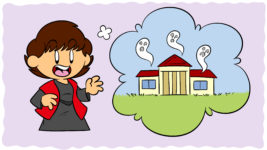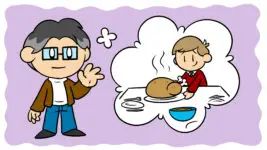Sometimes, writing that next sentence is daunting. So daunting, you may as well post about it on Facebook. Maybe Twitter too. While you’re at it, you should probably check in on Instagram and see what your friends have gotten up to. Oh look, one of your friends got a picture with Bradley Cooper. I wonder what movies he’s going to be in next. Better check IMDB.
And there goes your morning.
This is the constant battle that all writers face. Not just the beckoning distraction of the internet, but everything else in life that throws curveballs into our days. So how do we buckle down, overcome distraction, and finally finish that novel? Here are a few ideas that might help.
Set writing goals
This may sound like something straight out of your high school counselor’s office, but it might just work for you. These goals don’t have to be I’m-gonna-finish-my-novel-next-month goals (though if that works for you, go for it!); they can be simple, bite-size goals. How about: I’m going to write a page every single day? Or maybe: I’m going to write two paragraphs every day. Or even: I’m going to write a chapter a week. You just need something to keep you writing. Something to strive for. Ernest Hemingway famously only wrote around 500 words a day. But he did write every day. It turned out okay for him.
So set something to strive for. Write every day. It’ll make a difference.
Don’t hide your writing from yourself
The problem with the distraction of the internet is that it’s accessible on the very device where most of us do our writing. It’s like trying to build a retaining wall that keeps playing your favorite movies. Forget about it.
But there are some tricks that will help you keep that novel on the forefront of your mind and forgo (or at least stall) your internet binging.
I talk about this a bit on my blog about practical writing tips for the successful writer. Essentially, I think that keeping your novel up on your screen at all times can be very beneficial to remembering and forcing yourself to write. If you always have your manuscript tucked away in some folder, it’s easy to forget. But, on the other hand, if every time you open your computer BAM! there it is just waiting, begging to be written, you’ll probably be more inclined to write. Maybe you’ll read that last sentence you were working on and get an idea and move forward. Or, at the very least, in between your random research trails on the internet, you can flip back to your novel and keep on trucking!
Stop writing at the right time
One of the major things that gets me distracted is writer’s block. If I don’t have an idea for the next sentence/moment/description/scene, then I find my mind wandering, and I tell myself that I’ll come back to the page when I have a good idea.
Hemingway seemingly had a cure for this. He said: “The best way is always to stop when you are going good and when you know what will happen next. If you do that every day when you are writing a novel you will never be stuck.”
I have mixed feelings about this advice. On the one hand, it makes great sense. This way, when you pick up where you left off the next day, you will already have an idea in mind and can hit the ground running. However, I have a hard time recommending that any writer, who is caught up in the moment, stop writing. For me, if I’ve got a good flow, if I know my next sentence, then I don’t want to stop myself for fear of not being able to get back into the swing of things or to feel as motivated to continue. But maybe that’s just how I work.
The best I can say, is give this advice a shot, and see if you truly can pick up where you left off with no hitches and no writer’s block.
Overcome distraction by unplugging
This is the simplest tactic, but it really can be the most successful. I remember, a few years back, being stuck in an apartment for a few weeks without internet. It was during this time that I got the most writing done in a series of two weeks than I ever have. I didn’t have the distraction of the internet, the TV was a small thing with crappy picture, and I had nothing better to do. It’s sad that that’s such a motivator, but hey, it worked.
Taking a writing vacation, going somewhere with no internet, and spending even a day or two working on your project might help you finally finish that novel. If you don’t have the time to do this, try literally unplugging your internet. Spend some time on your computer and see how much you get done. I’m willing to bet that with the distractions out of the way, the words will start to flow.
Write one true sentence
Sometimes, we don’t want to keep writing because we don’t have an idea for what’s going to happen next. But, instead of focusing on the bigger plot picture, maybe just take a baby step. Write one more sentence. Describe an object in the room. Make your character take a single step forward. Have the wind rattle against the door. Just write something to put more words on the page. You might find that at the end of that sentence, you have an idea for another sentence. Then another. And then, before you know it, your character is moving, things are happening, and you’re writing again.
This might not always work, and maybe what you end up writing won’t be any good, but what can it hurt? When stuck on his stories, Hemingway had some good advice for himself, and for other writers:
“Do not worry. You have always written before and you will write now. All you have to do is write one true sentence. Write the truest sentence that you know.”
And, as it turned out, it worked for him: “So finally I would write one true sentence, and then go on from there.”
What are some strategies you have for overcoming distractions and writer’s block? Have you found any of the above techniques helpful?






1 thought on “How To Overcome Distraction And Really Finish Your Book”
The advice to write one true sentence, when stuck, is advice I will take to heart. I’m posting it on my bulletin board right now, I can see it and set it in my bones. Thank you.